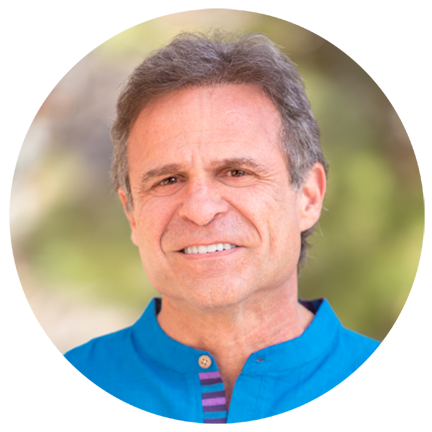Benzodiazepines like Clonaz, or clonazepam, are commonly used to treat anxiety, sleeping problems, epilepsy and alcohol withdrawal. Over 20 million clonazepam prescriptions were written in the US in 2017 alone. It’s intended to be a short-term solution to acute anxiety.
But the problem is, clonazepam is so habit-forming that one-third of those who take it for more than four weeks become dependent on it. And despite this, the upward trend in benzodiazepine prescriptions – and benzodiazepine addiction – continues unchecked.
“After a few months, the benzos blotted out my passions.”
The soothing effects of benzos like Clonaz can be highly alluring when you feel overwhelmed by anxiety, sleeplessness or the effects of past trauma. But that ability to numb down intense emotions can also have unintended effects, like numbing down parts of you.
“I should have listened to the pharmacist and quit taking the pills,” says recovered benzo addict Tessa Torgeson, “but I loved the way they made me feel… In the beginning, benzos instantly blotted out my pain and anxiety. I stopped having panic attacks and slept eight hours a night instead of five. But after a few months, they also blotted out my passions.” Tessa’s boyfriend expressed concern that she wasn’t herself anymore; that she had become a shell of who she was.
Many people who come to The Sanctuary for benzo addiction treatment feel the same way. And an important part of what they discover is their ability to come back online. The recovery journey provides opportunities for them to reconnect with parts of themselves that may have been dormant for a very long time.
How Clonaz (Clonazepam) Affects You
Clonaz, or clonazepam, is a sedative that works by binding to receptors in your brain and affecting your central nervous system. Other sedatives in this class include Ativan, Klonopin, Xanax and Valium: different brand names of the same type of drug, which vary slightly in their onset and release times.
Psychiatrists might prescribe benzodiazepines for anxiety and insomnia. They’re also used for panic disorders, epilepsy, alcohol withdrawal and sometimes as muscle relaxers. And while they may be effective for severe conditions in the short-term, they’re also extremely prone to addiction.
Benzos like clonazepam are meant to be taken only for short periods of time. In fact, shortly after its release in the ‘60s, the FDA issued a warning to take clonazepam for a maximum of two to four weeks. But many people become dependent on benzos even when they take them as prescribed. And some end up taking higher doses, far more frequently than is recommended, for months or even years at a time.
How Benzo Addiction Forms
Benzodiazepine addiction involves a few components:
Medication Tolerance
Benzos quickly build tolerance. That is, when you take them regularly (i.e. daily or weekly) over time, the effect wears off and you’ll need to take more to get the same result. And if you’re busy or you travel often, planning your life around the ability to secure benzos can start to feel very burdensome.
Psychological Addiction
Beyond physical dependence, psychological addiction to clonazepam takes place when you start to believe that you need it. Clonaz use usually starts with the intention to “just get through” a particularly stressful experience. But when you start to reach for it every time something bad happens, it becomes something you use to take away negative emotions. And when you use it regularly to take the edge off, what was once something you used as needed becomes something you use daily. Once it becomes a daily habit, you have to take it just to feel normal.
Doctor Shopping
Those who are taking benzos more often than prescribed inevitably run out of their prescription. At this point they may show up to their appointment with their psychiatrist early to request more. And when their doctor won’t prescribe more, they seek out a new prescription somewhere else. This is what’s referred to as “doctor shopping:” a sure sign of prescription drug addiction.
Risks of Clonaz Addiction
Benzos carry significant physical, mental and emotional risks:
Physical Risks
When abused, clonazepam can put you at risk of overdose and severe medical issues like liver, kidney and heart failure. It can also affect your balance, which puts you at greater risk for falls and accidents.
Cognitive Effects
Daily, long-term benzodiazepine use slows down your brain function. You might feel foggy and less mentally sharp. In the long run, it can also lead to more serious conditions like dementia.
Rebound Anxiety
“Rebound anxiety” occurs when benzos wear off and anxiety kicks in, which can feel worse than the anxiety you started with. This is actually a symptom of benzo withdrawal, but people often perceive it as having a real emotional basis. It also causes people to take more benzos to make the feeling go away, which further increases their use.
Diminished Coping Skills
When you take a pill every time you have a hard day, you put the development of your coping skills on hold. In fact, studies even show that the psychological effects of long-term benzo use include a reduced ability to cope with stress. This is why recovering from benzo addiction may involve some struggle as you learn to do things differently. But therapies like CBT and mindfulness meditation can help you sit with difficult emotions, and learn new techniques to change your behavior.
Clonazepam Withdrawals
Most medication withdrawals are uncomfortable, but withdrawal from benzos like Clonaz can be dangerous. If you try to stop cold turkey, you may go into a panic, which can be accompanied by other symptoms like anxiety, tremors, irritability, sweating and increased blood pressure and heart rate. In more serious cases, withdrawals can be life-threatening.
Withdrawals on the severe end tend to happen to those who have taken benzos in high doses for over three months. If you’ve been taking clonazepam daily, it’s not safe to stop taking it suddenly. An accredited detox facility can help you manage withdrawal symptoms, and a doctor can help you create a plan for tapering off safely.
You’ll also want to follow detox up with comprehensive treatment to make sure you address the underlying causes of your addiction and avoid relapsing in the future.
The Sanctuary: A Complete Clonaz Recovery Experience
At The Sanctuary, treatment for benzo addiction includes arrangements for detox, if needed, at a partnered facility. Once you’re here, you’ll receive an in-depth assessment of your medication and treatment needs. Our board-certified psychiatrist, who is also a functional medicine doctor and understands how your different bodily systems interact.
We’ll make sure you’re taking the right medications, on the right schedule. We also use natural supplements and holistic therapies to support you through the process of recovery so you can more easily reduce and eventually stop your use of Clonaz. And throughout the process, our extremely competent and compassionate team will hold you with the utmost care.
“All the recommendations the psychiatrist gave me were very attuned to what I needed.”
One former Sanctuary client describes his experience this way:
“Each therapist here has their own expertise. With each therapist, I truly felt supported. I felt that these are people who have gone through their own things and done their own work. That makes a huge difference with relating to clients. I felt a good connection with every therapist here, being human and even sharing some vulnerability. That helped me get in touch with my vulnerability and feel able to open up. All the recommendations the psychiatrist gave me were very attuned to what I needed.”
The sooner you start the recovery process, the sooner you can take back control of your health and happiness. Contact us today how you can stop taking Clonaz, and start creating the life you truly want.
He is the Founder, Administrator, Counselor at the Sanctuary at Sedona. He has a BA in Political Science and is currently Senior teaching staff at Four Winds Society, an international school of energy medicine. His credentials also include being an Ordained Minister; a Certified Shamanic Breathwork® Facilitator; a Founding Member Society for Shamanic Practitioners; a Member of Association for Comprehensive Energy Psychology; a Member of the National Institute for Holistic Addiction Studies. [email protected]


